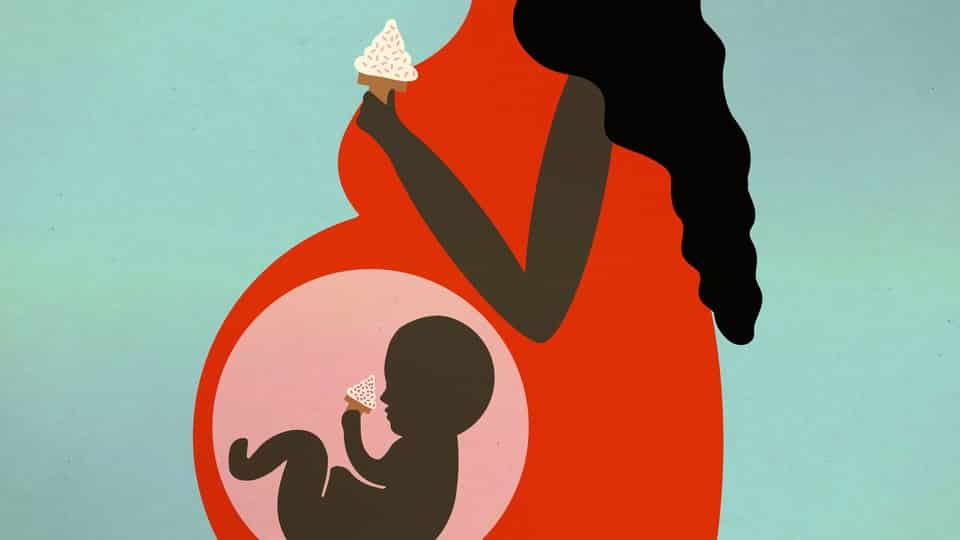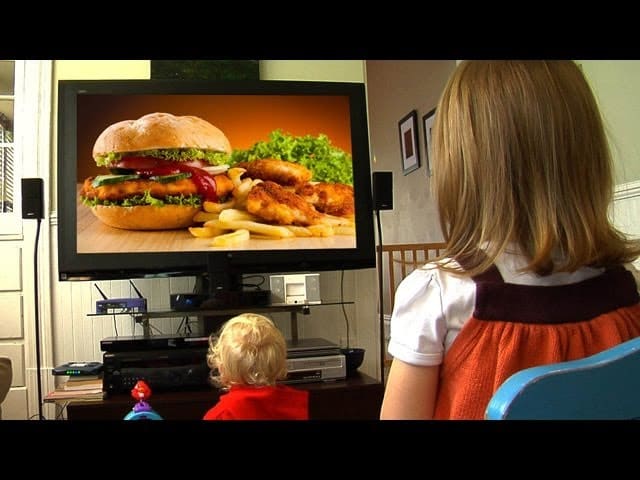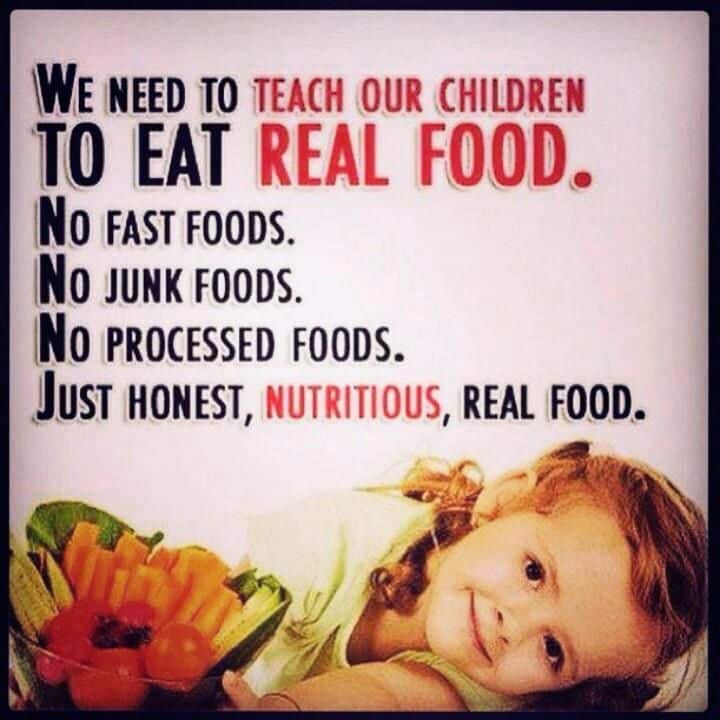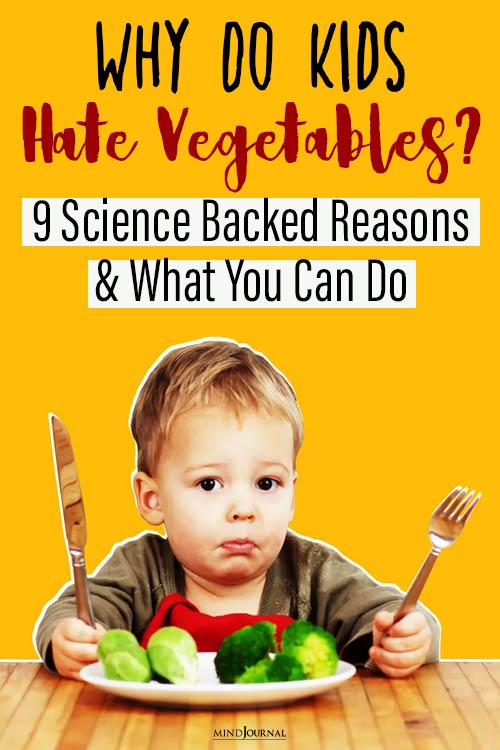“No veggies please”, “Broccoliiii……..yewww! I’m not eating these tiny trees.” “Cauliflowers are very smelly mommm.” Fed up of these tantrums? Trying to convince your kids to eat vegetables but in vain? Read on to know why do kids hate vegetables and how to fix that?
Scientific reasons why do kids hate vegetables
1. Kids associate food with good or bad memories
According to the psychological concept – ‘paired associative learning’, kids associate food rich in fat and calories with positive memories such as parties, treats, rewards, and celebrations. On the other hand, they associate vegetables with unpleasant memories such as boring meals and nagging parents. This is why a lot children dislike vegetables.
When a child bites a burger their brain reward system gets activated and releases more dopamine, the neurotransmitter responsible for pleasure and excitement. Once tasted, kids want more fast food!
Thus, fast food boosts kids’ appetite while vegetables repel them.

2. Taste development takes time in children
This is why do all kids hate vegetables! Children have a high preference for sweet and salty tastes, which decline with age. We all get used to different tastes later on by trying out a new food for fun, fitness, or by simply observing others.
For example, most people feel uncomfortable when having black coffee or dark chocolate for the first time, but tend to adapt slowly over time. Similarly, a child requires a lot of time before developing an interest in other tastes.
Why do kids hate vegetables especially green cruciferous veggies with a slightly bitter taste?
The bitter taste comes from calcium content and the presence of beneficial compounds such as –
- Flavonoids
- Phenols
- Isoflavones
- Terpenes
- Glucosinolates
Children taste this bitterness more strongly than adults, which is one of the main reasons kids hate vegetables.
Bitter taste in food is also a sign of toxicity, although not concentrated enough to make us sick. But, children are more prone to toxic overload than adults and have a less-developed capacity for detoxification. Thus, children dislike vegetables!
Read 9 Signs of Nutritional Deficiencies In Children
3. Genetic factors can make kids hate vegetables
Surprised? Well, genetic studies claim that parents who squirm on vegetables are highly likely to have kids who hate vegetables.
Although you are used to eating vegetables now, you can’t expect your kids to adapt so quickly. If your child is a picky eater and that causes conflicts between you both, then there is a genetic mismatch. That is a crucial factor underlying why do kids hate vegetables.
Studies found that some people have a genetically-based, heightened sensitivity to bitterness. While some naturally like sweeter drinks and cereals with higher sugar content. People in the same family–possess different bitterness-detection genotypes, which influence detecting bitterness at low or high concentrations.
Kids who hate to try new food are sufferers of food neophobia—the reluctance to eat new food. This makes children picky eaters and is genetically determined. This is more common in identical twins than in fraternal twins.
4. Maternal diet during pregnancy

A mother’s food choices during her pregnancy have a great influence on an infant’s later acceptance of solid foods.
- The amniotic fluid that surrounds the fetus contains many flavors from the maternal diet
- The fetus regularly swallows amniotic fluid
- Taste and smell are already functional during fetal life
It means the first experiences with flavor occur prior to birth. These “transmittable” flavors influence the acceptance of these flavors by the infant after birth.
Read 5 Easy Ways to Increase Your Protein Intake
In one study exploring why do kids hate vegetables, pregnant women who consumed carrot juice for three consecutive weeks had kids who exhibited fewer negative responses when first introduced to carrot-flavored cereal as compared to plain cereal. In short, familiarity plays a key role in the acquisition of food and flavor preferences.
5. Kids hate vegetables because their parents hate them too
Research on why do kids hate vegetables shows that parent’s food preferences at the dining table have a great influence on the taste development of kids.
- Do you include lots of green vegetables and fruits in your diet?
- Are you setting a good example when it comes to food choices?
It’s your model of eating that children learn to emulate. In one study low-income adolescent girls who saw their fathers consume milk had higher calcium intakes than those girls who did not see their fathers drink milk.
6. Mommy’s feeding practices
Feeding practices have a great impact on children’s acceptance of vegetables. According to one study, breastfeeding and a longer duration of breastfeeding are linked to greater fruit and vegetable consumption in infancy.
Some parents strictly restrict children’s access to and intake of “unhealthy” or “junk” foods, while others use coercion and force-feeding to increase the intake of vegetables. Such practices can have negative effects on children’s food preferences.
Do your kids hate eating vegetables? Are you using feeding practices that encourage the development of culturally appropriate eating patterns?

7. Poor eating environment at home
Unlike decades ago, today most families have both parents working to make ends meet. A lot of working women are not able to fulfill the primary responsibility for feeding children and get less time to eat together at the family table.
As a result young children are taken care of and fed by caretakers at out-of-home childcare homes or extended family members, who may or may not feed healthy food to children. Most food that children of working parents eat is prepared and consumed away from home. This impacts children’s overall dietary intakes. That is why do kids hate vegetables!
As kids grow up they are exposed to large portions of palatable, energy-dense but nutrient-poor foods. If children are more exposed to ice creams, cake, and junk food, they are sure to hate eating vegetables.
8. Children like food that gives instant energy
The energy requirement for children is more than what adults need. So, food in the form of glucose or something that is calorically dense and easily digestible attracts kids. Junk food appeals to a child’s “primordial tastes”.
Children are more drawn to sweets and fast food because they provide instant energy, besides taste and satisfaction. This is why do kids hate vegetables! Unfortunately, this contributed to the childhood obesity epidemic and other eating disorders in children.
On the other hand, vegetables are not rich in calories and contain indigestible fiber that takes a long time to digest and meet the body’s fuel demands. That explains why kids with massive energy needs don’t like veggies.
Read The Food Craving Guide: What You Crave For and What Your Body Actually Needs
9. Media motivates kids to hate vegetables
Some studies on why do kids hate vegetables found a positive association between TV viewing and consumption of fried foods, sweets, pizza, and snacks. High television viewing time is inversely associated with fruit and vegetable consumption.
Celebrities have a great impact on children’s minds. If your kids’ favorite superstars endorse fast food they are highly likely to develop a taste for pizzas and burgers rather than carrots and beans.

Kids tend to focus more on taste and satisfaction than health and fitness. So no matter how much you bribe them with desserts or over-praise them, they would not eat it when anything tasty is not served.
Now, that you know why do kids hate vegetables, how can you fix it?
9 Tips to help kids love veggies
1. Cook less bitter food
Here are tricks to get your kids to eat vegetables:
- To make the food kids-friendly, slightly add something fatty, sweet, or salty.
- The preparation methods of caramelizing, pickling, braising, and sautéeing can reduce bitterness in vegetables.
- Make sure not to add an extra layer of cheese to your vegetables!
- The goal is just to increase the palatability of a vegetable dish.
2. Make the food as familiar as possible
According to one study, providing dip or a sauce promotes the intake of moderately liked raw vegetables like broccoli in preschoolers (with a genetic sensitivity to bitterness). Pair up an unfamiliar vegetable with a familiar dip. So, if you add cheese to it, make sure it is a cheese that your children know and like to make eating veggies more interactive.
- Be sure to avoid unhealthy ingredients like refined sugar and vegetable oils.
- Go for natural ingredients and full fat!
- Prefer homemade hummus, yogurt-based dips, natural peanut butter, or any homemade sauce cooked with natural ingredients.
Now, this is a wonderful trick for parents to make their kids eat parsley hummus with the same enthusiasm as when they eat nachos with cheese dip.
3. Limit the exposure to the fast food
Loading your kitchen with more fresh green vegetables and fruits will leave your kids with no other choice but to eat them when hungry. At the same time, do pamper them occasionally with their favorite ice creams and cheeseburgers.
Else, they would always consume fast food in more amounts during playdates with friends. You know what I mean! The human mind always chases things that are restricted or prohibited. Allowing children to eat outside once in a while will help them understand that fast food can be consumed on rare occasions.
4. Be your child’s role model
Children are mirrors, they reflect images of gestures, language, behaviors of adults in their lives, and interests that happen around them. They will learn to enjoy vegetables through the direct experience of eating and by observing the eating behavior of others.
So, if elders enjoy eating vegetables instead of treating it as a chore, children will follow. Over time, they will follow a positive association with vegetables. Tips to help kids love veggies include:
- Focus on creating a healthy eating environment.
- Sit with your kid and eat the same food you want them to eat.
- Even if you are a busy working mom, try to maintain your parental responsibility of feeding.
Should I force my child to eat vegetables? No.
At times add gentle, firm pressure on kids to eat veggies. No Nagging or forcing. And, you will notice that your kids will maintain their responsibility of eating.
Read Are You A Food Empath? 6 Ways To Overcome Food Addictions
5. Let your children decide and have fun
If you have older kids let them pick vegetables at grocery stores or choose recipes or veggie toppings for pizza and so on. This will give your kids a sense of pride and make them more cooperative during lunchtime.
Allow them to arrange food, they will have fun choosing brightly colored bowls and plates. These activities will encourage the little ones to try a variety of vegetables.

6. Mouth watering presentation can go a long way
Children will enjoy their meal if the food is presented with thoughtful decorations. Add a variety of colors, contrast, and textures to your food. A wonderful trick to get your kids to eat vegetables.
Do you know the design of spoons and bowls also grab a kid’s attention at the food table? The way you chop vegetables also adds to visual appeal.
When cucumbers are thinly sliced and placed on top of the other salad ingredients, it becomes considerably more appetizing. That said, make sure your food tastes as good as it looks.
7. Be sneaky
We need at least 10-15 tries to really determine whether we will like a certain food or not. Several studies have highlighted that kids’ preferences for and acceptance of new foods are enhanced with repeated exposure to those foods.
So, if you want your little ones to like mushrooms try adding them to some of their favorite dishes. Don’t give them 15 servings back-to-back, but sneak mushrooms in different foods. Let them enjoy small bites every time.
Similarly, sneak other vegetables into their favorite dishes so that they have enough green stuff for the day. For example, add shredded carrots and chopped spinach to pizza and sauces. These tricks to get your kids to eat vegetables will surely work!
8. Reward good behavior
Using green vegetables as a reward for good behavior (like praying before meals or completing school homework on time or walking the dog in the evening), will increase children’s preferences for those foods.
The human brain is wired to get encouraged when praised. Also, try non-food rewards like gifting stickers or sleepovers with friends, movie trips, or anything for eating vegetables.
9. Food education
In a study, 44 child/parent groups were involved in cooking skill-building and hands-on meal preparation. This resulted in an increasing trend in fruit and vegetable intake in the intervention group compared with the control group.
So, mums can arrange short cooking classes for their little ones on weekends when attempting to increase their fruits and vegetable consumption.

Try to avoid jargon! Children may not be interested to know about vitamins and minerals, but you can explain to them which of the vegetables is good for skin, bones, stomach, or weight. Educating your child this way helps them remember what vegetables do to the body when eaten. They will definitely start eating and liking it too.
I hope you have a better understanding of why do kids hate vegetables? Did you find the above tips to help kids love veggies helpful? Leave a comment below.











Leave a Reply